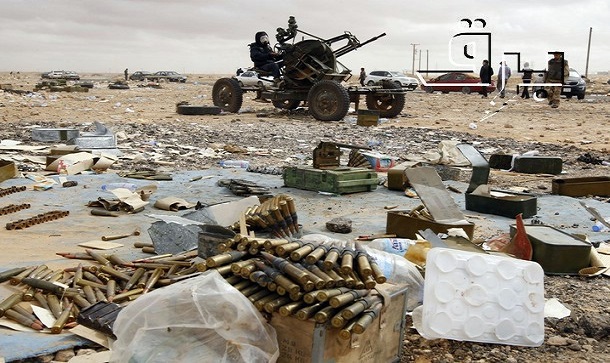Libya: militias leave Tripoli, but in Benghazi clashes restart
After the successful effort to expel militias from Tripoli, other areas of Libya remain under siege. In Benghazi clashes and strikes have started against the presence of jihadist group Ansar al-Sharia. Fights between Army and jihadists led to the death of fourteen people.
As reported by Magharebia, on 22nd November militias settled in Tripoli left the Libyan capital, one after the other. However, in Benghazi the situation is still charged with tension. Clashes between Libyan Army and jihadist group Ansar al-Sharia led to the death of fourteen people (seven according to Magherebia, nine for Reuters). Clashes exploded after a man had been beaten by Ansar al-Sharia’s border guards, a military source said. Immediately, Libyan Interior Minister Sidiq Abdel-Karim claimed that the respect of law disbanding military groups is fundamental for the stability of the country. A good answer, if we believed in Libyan government’s good intentions. Unfortunately, they still have to be tested.
Afterwards, chaos broke out. In Benghazi, a population distressed by violence went on strike. A strike involving schools, shops and public institutions, as reported by Italian news agency AGI. They were rapidly sustained by oil workers, an important acquisition for protesters, because of the consequent pressure on the entire Maghreb. Foreign authorities are interested in Libya. They have already influenced the settlement of the country. One of the most relevant states is certainly Tunisia: while Salafists claimed their non-involvement in clashes between Saiqa Brigade and Ansar al-Sharia, jihadists settled in Tunisia called 600 mujaheddins back from Syria. Consequently, Tunisia remains a difficult ground: Libyan diplomatic staff has to avoid Islamist groups passing through Tunisia.
On the other hand, some events could bring complexity into a scenario made flat by information. First, Ansar al-Sharia has already left Benghazi: a pretty mild behavior for a jihadist group. The source is Asharq al-Awsat, a Saudi journal founded “with the approval of Saudi royal family”. In other words, it is the moment that is suspicious, because of Saudi royal family’s wide interests in the region. However, this piece of news is really interesting: we started with militias leaving Tripoli, we end with another group making the same move. While government is facing people’s protests for the lack of security.
An agreement will probably pop up, but the achievement of a power balance is the central element to be analyzed in order to understand recent events. There is no reason to think that the government will stop its march after defeating jihadist groups (if it will). The so hardly obtained label of “security’s government” has a price (for population). It always has. But even Ansar al-Sharia has more than a good reason to wait and resist, trying to demonstrate the weakness of PM Zeidan. As reported by Lybia Herald, fights are now involving the city of Benghazi, with Ansar al-Sharia regrouped and re-entered in. No peace can be assured until militias will be armed, but government has mandatory duty to listen to the Muslim part of Libyan population. If it does not, they will be inexorably attracted by al Qaida. As happened in Egypt with Salafists, as happened in Israel in the ’80s, with the rise of Islamic Jihad and Hamas.
Photo: BRQNews/Flickr
